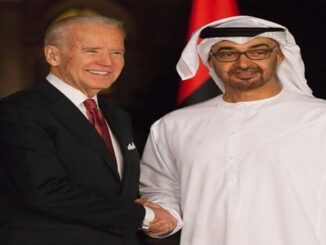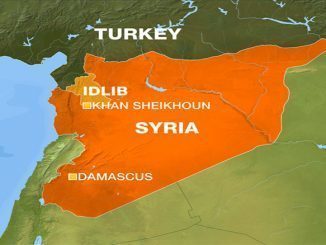
BY: Erol Göka*
Sorry about the theoretical bombardment in the first paragraph of my article, I will try to explain. I came across something I didn’t know while reading Gökhan Yavuz Demir’s lovely book ‘The uncertainty of language as a social phenomenon’, which the statements above belong to. To my surprise, the chaos and disorder created by the Thirty Years War was seen as one of the main reasons for the birth of modern thought and science. It was believed that, modern thought and science evolved from the ruins of the Thirty Years Wars; and this was achieved through the uncertainty of chaos transforming into the search for certainty. I learned that this was an issue that preoccupied the minds of many after reading Gökhan Yavuz Demir’s book. Lets put this information aside for now.
I have been wanting to write about the civil war in Syria, and how Iran and Saudi Arabia have sided according to their sects, thus this war stands as turning into a threat of ‘sectarian wars’ and provocation. My main theory was based on: ‘sectarian wars’ were not based on internal dynamics but instead were welded from the outer world made up of those who wanted to modernize the Muslims and ensure that the Muslims would turn into them. My theory was ultimately a conspiracy theory. As a person who would have to cure the mentality deriving from conspiracy theories, I should have been more considerate and evidentiary. While I waited, dear Merve Şebnem Oruç took action. She wrote on the topic firstly on April 17 with her article “Sykes-Picot yıkılacak Vestfalya 2.0 mı gelecek?”, and then on September 1 in her article “Does the West want to divide us?”
“Other things have been talked about ever since the West’s political determinants together with the Arab revolutions have turned into sectarian wars in Syria . for example; that the bottom line of the issue is ‘secularism against religion’… Or the end of the sectarian wars that terrorized Europe in the 17th century and the Westphalia Agreements… They say it is only possible to end the chaos in the region by likening the chaos in the region with the chaos of the 17th century Europe, and thus proposing that a similar solution is needed for peace. Henry Kissinger is one of the main figures who defends this opinion… Kissinger stresses upon this in his last book, published in 2014, as he likens the situation of the Middle East within the World Order to the 17th century Europe. He discusses how different Christian groups killed each other in Europe, but then how they learned to live together; together but apart.
Remember how the Holy Roman-German Empire lost with the Westphalia Peace, and victory belonged to sovereignty/autonomy and secularism. Westphalia also led to the birth of the notion ‘nation state.’ As the Western population expanded into the world, the principles that were adopted with Westphalia became the norms and principles of international law and the current world order… Meaning, Kissinger was trying to persuade us, using a Western example like Westphalia, into adopting an updated Sykes-Picot order.”
Oruç based her first article on Kissinger and then used the famous Brzezinski in her second article. She, too, says the state of the Middle East resembles the state of the Thirty Year Wars and that a Westphalia Peace is needed. “In an interview Brzezinski gave in 2014, he says the increase of identifying with religion has created the base for political hustle in the Middle East, and adds that this situation resembles the Thirty Year Wars and that the only solution is an agreement like the Westphalia.”
I don’t know whether Merve Şebnem’s determinations have grabbed your attention, but they are very convincing indeed. The opinions I touched upon at the beginning of the article are most probably better understood now. The Western mind has worked well on the Thirty Year Wars topic and has been making plans accordingly. Yes, we may not be proving this theory, but we are surely living it. Turkey, Iran and Saudi Arabia should focus on this point. Foolishly not being able to comprehend that the Muslim world has its own life and rhythm, some are trying to pull us into new traps after drowsing Muslims with notions like ‘Protestant Islam’, ‘Calvinist Islam’ and leading them to follow Capitalism. We should be able to shatter their traps and say, “ We can live with you, but we can never become you.”
*Erol Göka is a Turkish columnist. He writes for Yeni Şafak Turkish daily newspaper.
(Published in Yeni Şafak on Sunday, Oct. 2, 2016)



